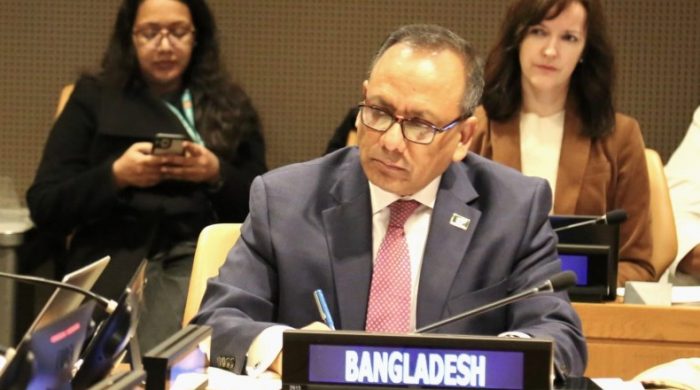Dhaka calls for joint steps to ensure rights of autistic children

- Update Time : Saturday, April 6, 2024
- 37 Time View

Bangladesh has highlighted the importance of accelerating awareness and actions towards addressing the challenges faced by the children with autism and their families, at a time when the world faces increased prevalence of autism.
‘It is alarming that in 2022, 1 in 100 persons have been detected to have autism spectrum disorder. We must step up efforts to ensure their overall wellbeing and societal inclusion,’ said ambassador and permanent representative of Bangladesh to the United Nations Muhammad A Muhith.
‘Let us work together to increase awareness and advocacy to ensure the rights, dignity, and well-being of children with developmental disabilities including autism,’ said ambassador Muhith at the observance of World Autism Awareness Day in the UN on April 5.
Co-hosted by the delegations of Bangladesh, Ghana, Malaysia, Philippines, Qatar and Zambia in partnership with key civil society organizations working in the field of autism and developmental disabilities the event featured an open forum and an art and fashion exhibition that displayed the artistic work of children with autism.
Ambassador Muhith and ambassador Manuel L Lagdameo of Philippines jointly cut the ribbon for the exhibition.
Referring to the 2011 Dhaka Declaration on Autism Spectrum Disorders and Developmental Disabilities, Bangladesh highlighted the progress made in raising awareness on autism, especially in South East Asia, which accounts for almost 15 per cent of global prevalence of developmental disabilities.
In this regard, the role of dedicated advocates, including self-advocates and caregivers’ associations, and policy-makers was recognised.
Dhaka Declaration and subsequent developments in the WHO Regional Committee for South-East Asia helped accelerate efforts in the region to improve inclusion, participation and community-based care of the children with ASD.
‘Yet significant gap remains in ensuring universal access to health care, support and inclusive environments for the children with developmental disabilities, which is more prominent in developing countries,’ said the ambassador.
In this regard, Bangladesh called for increased cooperation and investments towards ensuring education, social inclusion, and quality healthcare services to the children with autism.
An advocates’ call to action was launched at the meeting.
The inauguration of the art and fashion exhibition was participated by a large number of audiences including diplomats, self-advocates and parent advocates, civil society organisations and artists with development disabilities.















